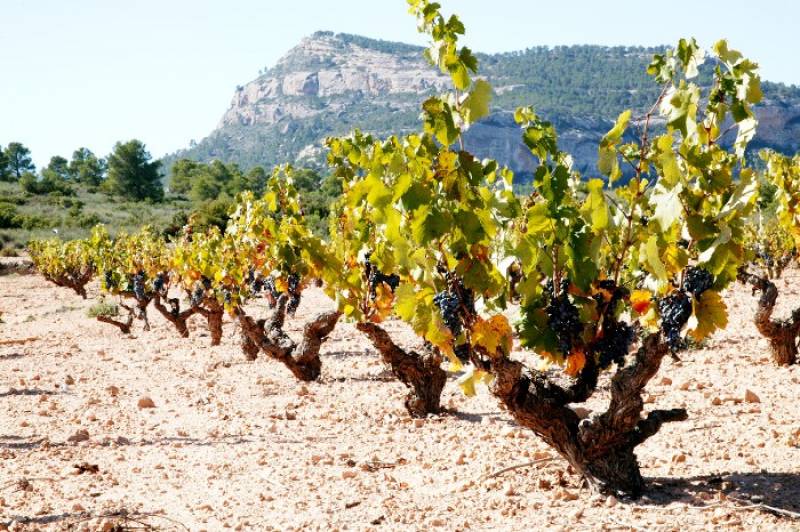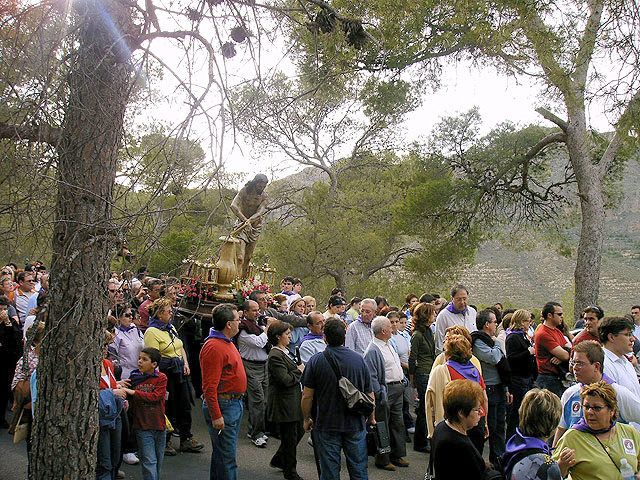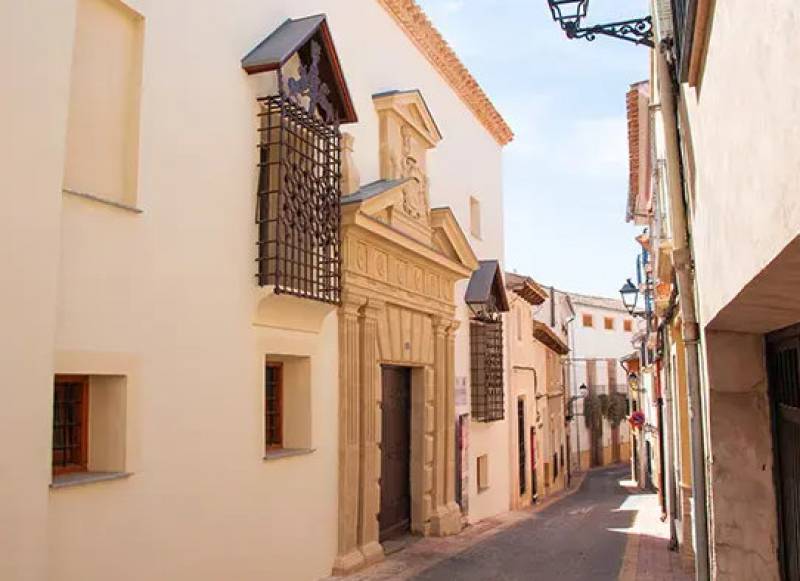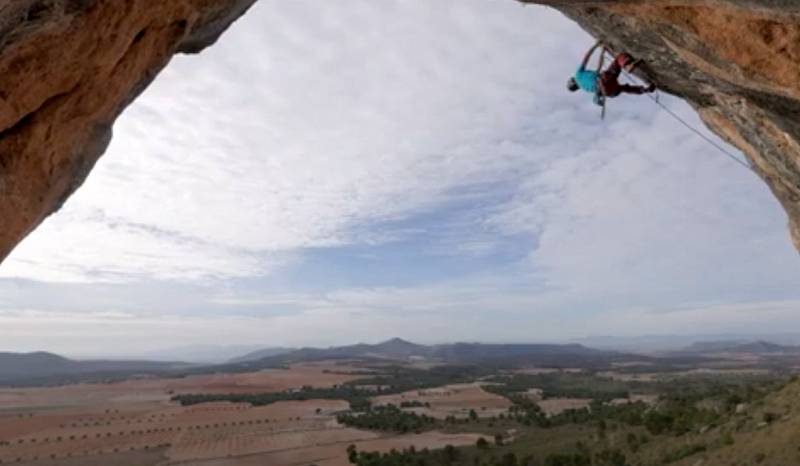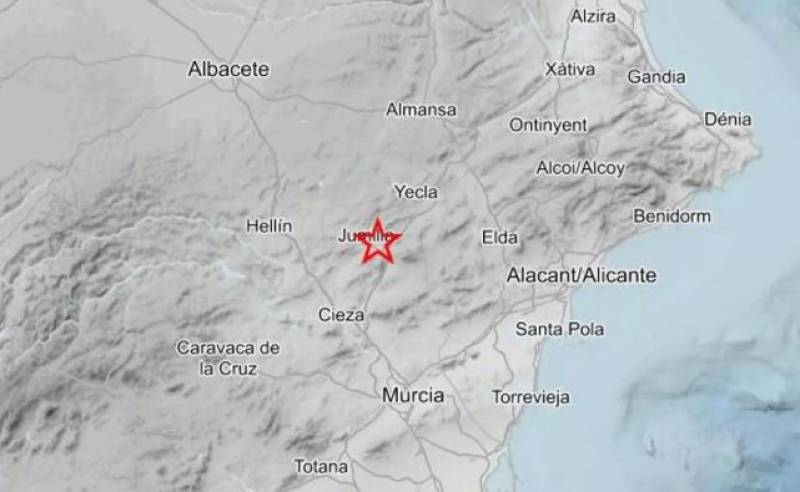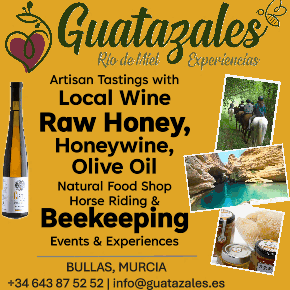-
CABALGATA JUMILLACLICK HERE!
-



 Welcome To
Welcome To Jumilla
Jumilla


 Welcome To
Welcome To Jumilla
Jumilla


 Welcome To
Welcome To Jumilla
Jumilla article_detail-->
article_detail-->

 Welcome To
Welcome To Jumilla
Jumilla- Region
- Águilas
- Alhama de Murcia
- Jumilla
- Lorca
- Los Alcázares
- Mazarrón
- San Javier
-
ALL AREAS & TOWNS
- AREAS
- SOUTH WEST
- MAR MENOR
- MURCIA CITY & CENTRAL
- NORTH & NORTH WEST
- TOWNS
- Abanilla
- Abarán
- Aguilas
- Alamillo
- Alcantarilla
- Aledo
- Alhama de Murcia
- Archena
- Balsicas
- Blanca
- Bolnuevo
- Bullas
- Cañadas del Romero
- Cabo de Palos
- Calasparra
- Camping Bolnuevo
- Campo De Ricote
- Camposol
- Canada De La Lena
- Caravaca de la Cruz
- Cartagena
- Cehegin
- Ceuti
- Cieza
- Condado de Alhama
- Corvera
- Costa Cálida
- Cuevas De Almanzora
- Cuevas de Reyllo
- El Carmoli
- El Mojon
- El Molino (Puerto Lumbreras)
- El Pareton / Cantareros
- El Raso
- El Valle Golf Resort
- Fortuna
- Fuente Alamo
- Hacienda del Alamo Golf Resort
- Hacienda Riquelme Golf Resort
- Isla Plana
- Islas Menores & Mar de Cristal
- Jumilla
- La Azohia
- La Charca
- La Manga Club
- La Manga del Mar Menor
- La Pinilla
- La Puebla
- La Torre
- La Torre Golf Resort
- La Unión
- Las Palas
- Las Ramblas
- Las Ramblas Golf
- Las Torres de Cotillas
- Leiva
- Librilla
- Lo Pagan
- Lo Santiago
- Lorca
- Lorquí
- Los Alcázares
- Los Balcones
- Los Belones
- Los Canovas
- Los Nietos
- Los Perez (Tallante)
- Los Urrutias
- Los Ventorrillos
- Mar De Cristal
- Mar Menor
- Mar Menor Golf Resort
- Mazarrón
- Mazarrón Country Club
- Molina de Segura
- Moratalla
- Mula
- Murcia City
- Murcia Property
- Pareton
- Peraleja Golf Resort
- Perin
- Pilar de la Horadada
- Pinar de Campoverde
- Pinoso
- Playa Honda
- Playa Honda / Playa Paraíso
- Pliego
- Portmán
- Pozo Estrecho
- Puerto de Mazarrón
- Puerto Lumbreras
- Puntas De Calnegre
- Region of Murcia
- Ricote
- Roda Golf Resort
- Roldan
- Roldan and Lo Ferro
- San Javier
- San Pedro del Pinatar
- Santiago de la Ribera
- Sierra Espuña
- Sucina
- Tallante
- Terrazas de la Torre Golf Resort
- Torre Pacheco
- Totana
- What's On Weekly Bulletin
- Yecla


- EDITIONS:
 Spanish News Today
Spanish News Today
 Alicante Today
Alicante Today
 Andalucia Today
Andalucia Today
article_detailJumilla wine route, Bodegas Pio del Ramo
Bespoke tours, organic wines and olive oils as part of the Ruta del Vino in Jumilla
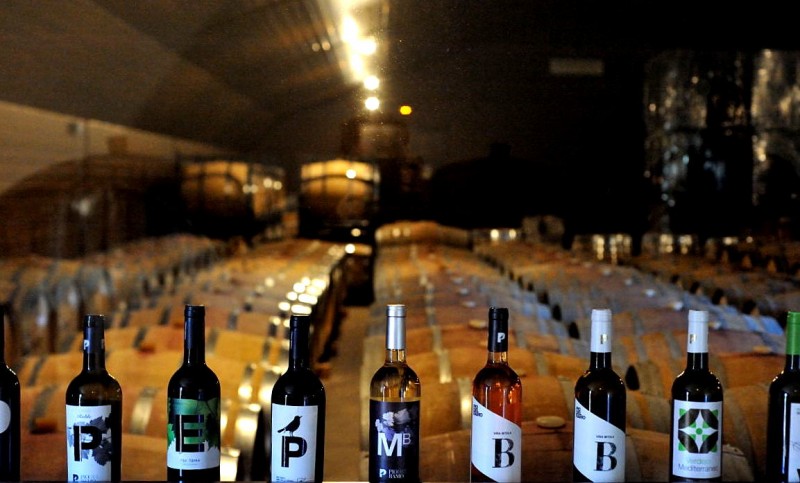
Bodegas Pío del Ramo is among various of the wineries forming part of the Jumilla wine route whose vineyards and wineries are actually outside the municipality itself, in the neighbouring province of Albacete (Castilla-La Mancha). Nonetheless, during the period of Moorish rule the nearby settlement of Ontur belonged to the “Taifa” of Murcia, its produce is typical of Jumilla wine, and the Bodega is easily reached as part of the Jumilla Wine Route network.
Although the bodega lies a few kilometres from others included in the route, it's well worth the drive as the company guarantees a warm and professional welcome to visitors from all over Spain and the rest of Europe, and its focus on organic production and interest in experimenting with white wines (this bodega was the first on the Jumilla Wine Route to produce a white Monastrell wine) make it special.
The winery is fully adapted for visitors of limited mobility, and this is an ideal location to sample two of the most typical products of southern Spain, namely the wine and the olive oil. At Pío del Ramo the staff tailor visits according to individual requirements, they help with transport and accommodation when needed, and whole-day programs can be provided for those who request them (those contracting coaches for tour groups are advised to contact the bodega for an inclusive price).
In short, for those travelling from the south the extra distance is worth it, not only to sample and purchase some of their unique products but also to experience the hospitality of the staff.
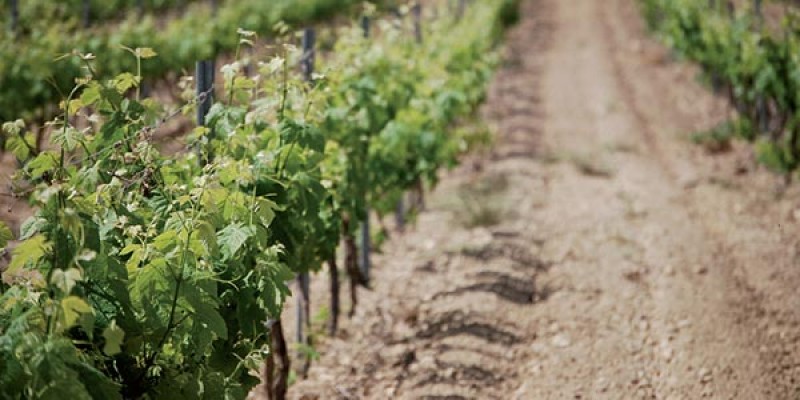
The vineyards and winery
The vineyards of Pío del Ramo are located both in Jumilla and in the Albacete localities of Ontur, Albatana and Chinchilla, and a wide range of varieties apart from the predominant Monastrell are grown in the soil, which in this area is rich in limestone and adequately permeable but poor in terms of organic material. This means that the vines grown must be fairly resilient, and of course must also be able to withstand the hot, dry summers.
The Pío del Ramo vineyards are almost all at approximately 700 metres above sea level, although one in Pétrola is higher, and is used to produce wine under the Denomination of Origin of Tierra de Castilla.
The most widely grown grape variety is the Monastrell, with vines aged between 10 years (in the Finca del Cuco) and 60 years, the oldest being those which produce fruit of the highest quality. The area where they are grown is the oldest fully ecological Monastrell vineyard in Jumilla, and among the oldest in Spain.
In addition, Cabernet Sauvignon grapes have been cultivated at the Finca de Las Gateras since 2003, Syrah vines are present at the Finca de La Casilla and the Finca de La Cañada, there have been Merlot grapes at Finca Pedreras, Finca Cero Blanco and Finca Teófilo since 2002, and there is a Tempranillo plantation at Finca Porrudos. Chardonnay are grown at Finca de Basteguillas and Finca La Florida, Moscatel at La Cingla, Cerro and Cañada de la Ermita, Petit Verdot at Finca Cespial and Verdejo at Pétrola.
However, perhaps the most prized vineyard is the one just outside the winery itself. This is used to harvest no more than 1,000 kilos of grapes which are then taken direct to the winery within five minutes of picking for a daring and innovative process which results in the production of a unique wine: a white Monastrell. So delicate is this process that it is not successful every year, but the result is one of the most intriguing wines within the D.O. Jumilla.
In all, the winery has at its disposal 20 hectares of white wine vineyards as well as 110 hectares where the red wine varieties are grown.
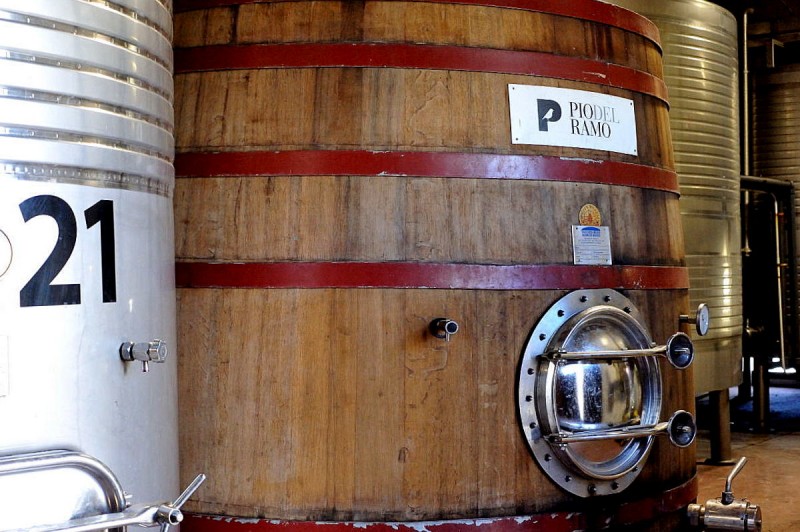
The winery
The aim of Bodegas Pío del Ramo is to achieve a clean, simple, safe and closely monitored production process, and in order to do so traditional techniques and procedures are combined with modern technology. The winery and olive oil press are set between the mountains of Sierra del Madroño and Sierra Parda in the north-eastern outskirts of Ontur, surrounded by Monastrell vineyards and blessed with panoramic views of the surrounding countryside.
The winery was founded relatively recently, in 2007, by the man after whom it is named (Pío del Ramo Nuñez), and makes full use of modern techniques for the production and aging processes while at the same time adhering rigidly to ecological agricultural guidelines.
The rustic environment belies the high-tech approach to wine-making, with hygiene and safety at a premium throughout the 2,500-square-metre facility. Since wine is produced under the labels of both D.O. Jumilla and G.P. Vinos de la Tierra de Castilla two sets of quality control stipulations have to be adhered to.
The temperature is controlled inside the aging area throughout the year, and all aspects of the production process are subject to strict quality control procedures.
Production currently runs to approximately 600,000 bottles per year, and the wines are so popular in Spain that only around 30% is destined for export.
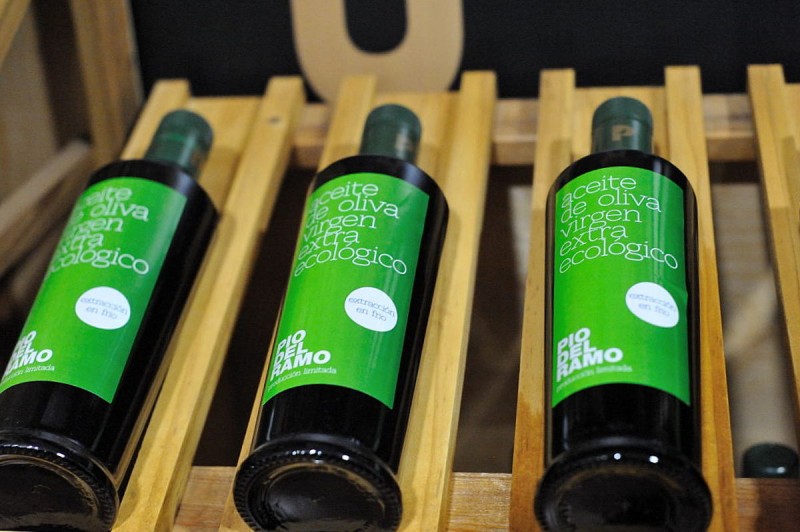
The olive oil press
Since 2011 Pío del Ramo has also produced its own extra virgin olive oil, using the crops from 40 hectares of Arbequina, Royal and Picual olive orchards. The products are 100% natural and ecological, and there are plans to increase production in the near future.
The oils produced are one made only from Picual olives, one from the Arbequina variety and one which is a blend of all three types grown.
The wines of Bodegas Pío del Ramo
Unusually for the area of Jumilla, the Pío del Ramo winery offers a wide selection of white wines alongside the more typical Monastrell red, including the unique white Monastrell which is available only in very limited numbers.
Pío del Ramo Verdejo Joven (G.P. Vinos de la Tierra de Castilla): a pale yellow white wine made exclusively from grapes of the Verdejo variety.
Verdejo Mediterráneo (D.O. Jumilla): another Verdejo wine, this time belonging to the Jumilla Denomination of Origin. This is the only 100% Verdejo wine produced in the area of Jumilla.
Pío del Ramo Chardonnay Barrica (D.O. Jumilla): the winery’s Chardonnay white.
Viña Betola Blanco (D.O. Jumilla): a white wine produced by blending Moscatel (Muscat de Grano Menudo or Muscat blanc à Petits Grains) and Chardonnay grapes. (This creamy gold wine retains a thick vein of fruitiness characteristic of Moscatel, but is aromatic and fresh, the mouth popping with a fruity, flowery aftertaste, yet with an off-dry sensation that makes it very palatable and uncharacteristically fruity for a D.O Jumilla wine. At under 4 euros a bottle, it's a steal!)
Viña Betola Tinto (D.O. Jumilla): a red wine for which the grapes used are Monastrell (60%), Syrah (25%) and Cabernet Sauvignon (15%).
Viña Betola Rosado (D.O. Jumilla): a young Monastrell rosé made from grpaes picked in early September, permitting them to retain their natural freshness and acidity. One of the more subtle Monastrell products, ideal with seafood and paella as well as pasta, chicken or salmon.
Pío del Ramo Tinto Roble (D.O. Jumilla): a similar blend of grapes, aged for between 4 and 6 months in oak barrels.
Pío del Ramo Crianza (D.O. Jumilla): 60% Monastrell (Mourvèdre), 15% Petit Verdot, 15% Syrah, 10% Cabernet Sauvignon. A complex wine aged for up to 10 months in oak barrels.
Pío Ecológico (D.O. Jumilla): 100% Monastrell grapes, a fully certified ecological product.
Alont (D.O. Jumilla): a silky smooth red made with Monastrell, Syrah, and Cabernet Sauvignon grapes and aged for 18 months in oak barrels.
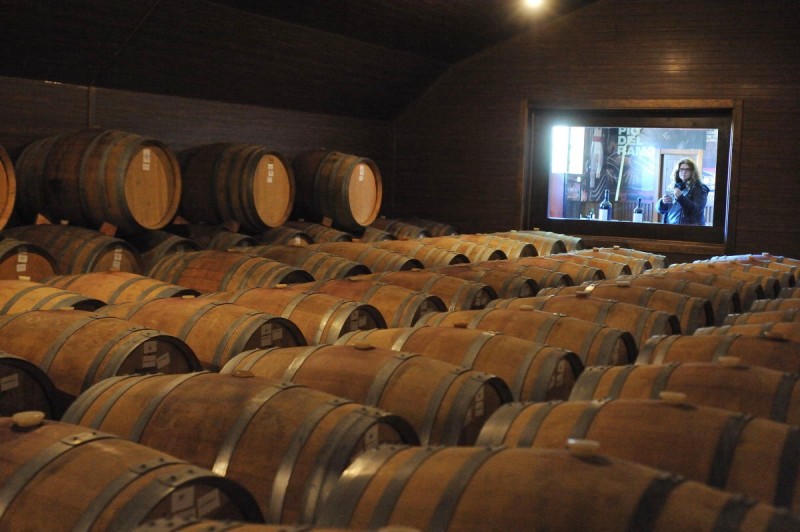
Visiting Bodegas Pío del Ramo
At Pío del Ramo every effort is made to ensure that visits are as easy to organize as possible, and help is even provided with coach hire for larger groups. In addition, those booking are advised to provide some information regarding what they would most like to see and do in order to tailor tours to individual preferences.
Adequate parking is available for coach parties, as well as individual visits
A standard tour is priced at only 6€ per head, including the tasting of three wines, but personalized whole-day visits (including lunch if required) can also be contracted, again including transport arrangements for large groups. Tastings are usually in the “Sala de Cata”, but for large groups they are held in the main reception area and snacks are also offered to visitors with the wine.
It is also worth noting that this winery is especially suitable for visitors of limited mobility: there is not a single step or stair in the whole of the winery, all doorways are wide enough to accommodate wheelchairs and there are special toilet facilities for the disabled.
The winery is open on weekdays between 9.00 and 13.00 and from 15.30 to 18.30, and at weekends between 10.00 and 14.00. Prior booking is highly advisable in order to avoid disappointment.
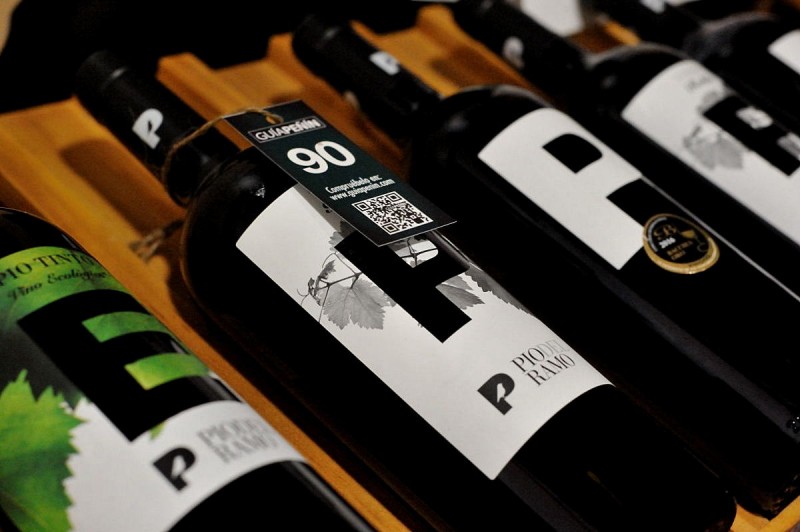
How to find Bodegas Pío del Ramo
Bodegas Pío del Ramo is reached from Jumilla by taking the RM-403 road to Ontur (from the intersection on the RM-344 at kilometre 70). Once over the boundary with Castilla-La Mancha, this road becomes the CM-3215.
On arrival in Ontur follow the signs first towards Albatana and Hellín, across the river bed on the western edge of the small town, and then turn right towards Tobarra. Almost immediately take the CM-412 towards Fuenteálamo at the roundabout, and the winery is on the left after a couple of kilometres.
From Jumilla the journey distance is 27 kilometres and it ought to take around 25 minutes, but this can be variable: long stretches of the road is dead straight and it’s hard to keep to the speed limit, but on the other hand there are spectacular views and it is equally tempting to stop and take photographs!
Click map for exact location.
Contact details
Address: Carretera de Almansa, s/n, 02652 Ontur, Albacete
Telephone: 967 323230 / 610 418098
Email (for visits): enoturismo@piodelramo.com
Website:piodelramo.com
Coordinates: N 38° 38' 1.7", W 1° 29' 31.34"
For more information about visiting Jumilla, including what's on, local news and all of the bodegas on the Jumilla wine route, visit the home page of Jumilla Today.
article_detail
Contact Murcia Today: Editorial 000 000 000 / Office 000 000 000





